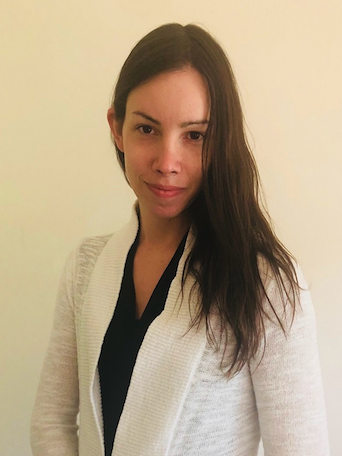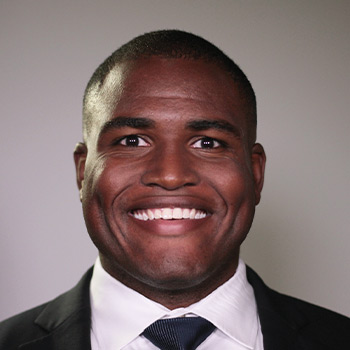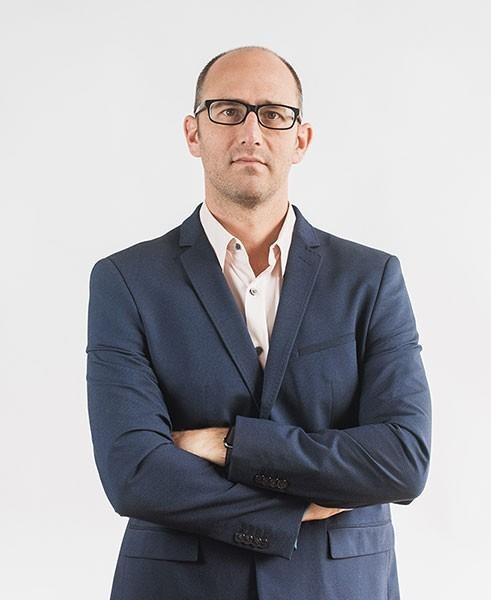Transcripts

Erik: Joining me now is Lyn Alden, founder of Lyn Alden Investment Strategy. Lyn has prepared a slide deck to accompany today's interview. Registered users will find the download link in your research roundup email. If you don't have a research roundup email, just go to our homepage macrovoices.com. Click the red button above Lyn picture that says looking for the downloads. Lyn, it's great to get you back on the show. Last time we spoke, I think oil prices were around $90 or so. And you told our listeners look, you are very, very bullish longer term, but you thought in the short term prices could get all the way down to $70. You totally missed that call. It was $70.08 so you're eight cents off. I think we'll go ahead and score that one as a win. How should we look at it now though? Does that mean the bottom is in at 70.08 or could it be that we've got another wave down and are you still bullish long term? And when do you think this this market turns around?
Lyn: Sure Good questions and thanks for having me back. I'm still long term bullish on energy, the supply demand situation is still long term very tight. You know, especially on the supply side. And now we have China partially reopening to some degree. We'll see how fast or how slow that goes. But essentially, the long term thesis I think, is still quite bullish for the whole space. In the near term. I think that at these, these lower price levels, it's been de-risked to some extent in the intermediate term. At this point, you know, I'm not trying to call a specific, you know, exact bottom on the market, there's still a lot of like a lack of clarity for the next few months in terms of decelerating economic activity. But I think that as you look out a couple years, I think the situation is still quite bullish. So you know, a lot of this clarity in the near term, but still very bullish long term. And I think a lot of oil equities are attractive, I think a lot of pipeline equities are attractive. And I think also, the underlying is pretty attractive.

Erik: Joining me now is Robert Friedland, who is probably best known as Chairman of Ivanhoe Mines and Ivanhoe Capital but he's also the chairman of a company you might not have heard of called I-Pulse. We'll be talking more about that in today's interview. Robert, it's great to get you back on the show. Our listeners have heard from me in recent weeks that I'm convinced that an energy crisis, a global energy crisis is imminent. I think the fact that we are currently enjoying low crude oil prices is an illusion that won't last very long. But you've certainly been around energy markets longer than I have. What's your take?
Robert: Well, it's great to be back with you Erik. It's amazing how much the world has turned. We went around the sun once and everything we talked about a year ago has come to be real. The energy crisis you're referring to is not a future phenomenon. It's here now! It has arrived. It's arrived because suddenly the world is at war and war has changed everything. We have such high electricity prices in Europe that smelters that produce metal can't afford to operate. They're shutting down. And that's only an $80-$90 crude oil, but astronomically high electricity prices in Europe. That's an amazing story of how we got there from here. But the energy crisis is already upon us and Russia is a giant crude oil producer arguably the largest, if not the second largest. And now that we've placed sanctions on Russian energy, just the marginal reduction in production has put the world on a knife's edge for energy. We thought that the price of coal was gonna go down, we don't need it anymore. But Glencore made $16 billion mining coal last year, coal prices have skyrocketed. The Germans are burning coal to get through the winter. Angela Merkel had closed about 16 nuclear power plants in Germany. She was reliant on Nord Stream one and two, Russian natural gas. What a silly thing to do now that that natural gas is no longer available. The minute it got cold in Europe and the wind stops blowing all of Europe is short of electricity. We haven't seen electrical prices this high ever. It's already for Europe, an existential crisis. We haven't seen a major European population be bombed into the stone age. So they freeze in the dark. That's a moral obscenity. But that's what's happening to 40 million people in Ukraine this winter. And the implications are apparent, we are extremely vulnerable to a global energy crisis. Europe itself has only a few remaining natural gas pipelines. There's a natural gas pipeline from Norway to Europe. And there's some natural gas coming from Algeria to Spain and to Italy. But we now know that those ocean bottom pipelines are vulnerable to sabotage, as are all the Internet backbone that goes across the ocean and fiber optic cables. And so all of this fundamental infrastructure is now known to be vulnerable. And every major society is worrying about securing its own supply chain.
So Erik, if we go back to what we were talking about a year ago, in about 2008, we had an integrated world economy. It was just-in-time, everybody loved everybody. If you went to Walmart, everything said made in China. Today we have a just-in-case economy. Every society wants to secure their energy supply chain, their food supply chain, their basic raw material supply chain. The Japanese are rebuilding an army it was just announced last week that Japan's gonna spend 2% of GDP to build an army. They haven't done that since World War Two. Ditto, the Germans haven't had an army worthy of their name since World War Two. The Koreans want their own supply chain, they don't trust the Japanese. The Chinese want their own supply chain. India wants its own supply chain. Europe wants its own supply chain. Of course, America now has its partnership with the five eyes. So as we've balkanized the world economy, it's an insanely inflationary phenomenon. And each group plays to its own strengths and the people that are long energy, want to drive the price up. Vladimir Putin benefits from high energy prices. And now we have a situation where cheap Iranian drones are being bought by Russia and used on Ukrainian civilians. Obscene, obscene destruction of the energy backbone in Ukraine, which incidentally, feeds electricity to Europe. So here comes 1000 cheap drones a you, you might shoot down 950 of them, the other 50 get you. If those Iranian drones were turned on Saudi Arabia, for example, we could have $200-$300 crude oil forever. So I think the first point we need to make is that we should thank God every day, for the energy security the Western world enjoys from Saudi Arabia. Saudi Arabia, as a reliable supplier of energy to the world is literally keeping the lights on. They don't want the price to be so low, that you have less energy production. And they don't want it to be so high that you destroy the Western world economy. But without their responsible role in conventional energy, there would be no hope of making an energy transition. And so, you know, if you take 10 dogs in a room, I think you will observe that those 10 dogs all smell both ends of every dog. And so every nation now is worried about its own energy security and food supply. And that means that we already today in an energy crisis.

Erik: Joining me now is 42Macro founder, Darius Dale. Darius prepared a slide deck to accompany today's interview. I encourage you to download it as we will be making extensive references to it throughout our discussion. Registered users will find the download link in your research roundup email. If you don't have a research roundup email, just go to our homepage at macrovoices.com. Click the red button above Darius' picture that says looking for the downloads.
Darius, I really want to give you credit, we had you as one of our very first guests in 2022 on this program. At the time, the stock market, the S&P was I think just barely below 4800. Everybody was talking about buying the dip and you know, market can't go any lower. You came out in January of 2022 and said, hey I think it could be a crash year for the stock market. Things are not as good as everybody thinks. Clearly, you got the gist of that call right because it was a big down year. And it surprised a lot of people but the question in my mind is, it seems to me Darius, you use the word crash specifically. And I felt like that big, huge bear market that we had never really had a panic moment. So is the crash already happened? Or is it maybe still yet to come?
Darius: Oh, well, thanks for having me back on the show Erik, I appreciate the very kind words. I mean, it's I think we did do a good job of helping prepare investors for the difficult bear market that we experienced in 2022. I did an okay job trading it. I think I lost 334 basis points in my capital trading. I should have been up with the crash in January, I definitely should of have made money but it just goes to show you how tough these bear markets are.

Erik: Joining me now is Justin Huhn, a regular MacroVoices listener and editor of The Uranium Insider newsletter. Justin, it's great to get you on the show. I want to first congratulate you. You launched your newsletter in August of 2019. I wish I had discovered it then I've only been a subscriber for a couple of months, but I'm absolutely loving it. You are up right now 359% since inception August 19, on the stocks that you've recommended in your newsletter. At one point that was 450%, the market has been down a bit, obviously with the rest of the market down. But congratulations on terrific performance and glad to have you on the show.
Justin: I'm really pleased to be here, Erik, thanks for having me. Like you mentioned, I've been a listener for many years. So I'm really excited about our conversation today.
Erik: I am too and listeners, Justin has provided a slide deck to accompany this interview, you'll find the download link in your research roundup email. If you don't have a research roundup email, just go to our homepage macrovoices.com. Click the red button above Justin's picture that says looking for the downloads. Justin, the topic is going to be investing in all things nuclear and listeners if you missed it last week. We had Mark Nelson on talking about understanding all things nuclear, especially as we get into the advanced nuclear technology investment opportunities. You want to have heard that interview first so be sure to check that out.
I want to jump right in Justin, with what I think is the most important question because let's face it, nuclear power has been a really good idea for decades. But frankly, it's been a horrible investment because for good or for bad. The public perception of nuclear is anything but good. And obviously in the wake of Fukushima, it's only gotten worse. So why would investors want to think that that's changing now? What are the important catalysts that need to happen? And how do we get from where we are today where, you know, even in an energy crisis in Europe, you've got countries like Germany that are famous for their knowledge of engineering and technology, shutting down nuclear plants. So how could this be a sensible investment trend that we want to be long?
Justin: That's a really good question. I think it's involves a pretty in depth and nuanced answer. So I'll do my best here but to your point with Germany. Germany had, I believe it was 17 reactors at the time that the Fukushima Daiichi accident happened. They shut off about half of their fleet within a couple of years, with the plan to phase everything out by the end of this year. They have three remaining reactors online. Those were just extended to April. It's possible that they get extended beyond that, but we're not holding our breath. I guess the bright spot with the Germany situation is that it's an example for all to see of what not to do. So Germany, not only did they phase out nuclear, which they have a fantastic, very highly efficient fleet of nuclear reactors in Germany that have been shut down for purely political reasons. There's absolutely no reason to shut these plants down early. In the doing so they vastly expanded both solar and wind in addition to biomass, which by the way, biomass in Germany which qualifies for quote, unquote, green energy is literally trees being cut, clear cut in the United States and shipped across the sea and burned to boil water. And that's their green energy and biomass.
But their multiple hundreds of billions invested in solar and wind have basically resulted in a net drastic increase in carbon emissions and general air pollutants in the country as the most polluting country with an exception of Poland in the entire EU. Why is that? Well, when you shut down your baseload clean energy, nuclear, and you expand intermittent renewables with insufficient backup, in terms of, let's say, battery supply, for grid scale battery storage. When the sun isn't shining, the wind isn't blowing, the only thing they have left, especially when Russia cuts off gas to Germany is coal that is a baseload power source that can cycle up and down easily, that can make up for the lack of energy that's being contributed to the grid by other intermittent sources. So it's been this the energy vendor program. Over the past decade, they've phased out nuclear. Gone all in on wind and solar, and it's been an abject failure. They're paying the highest rates they've ever paid. GDP is in a downward spiral in the country industry is closing up shop Volkswagen is thinking of moving out of Germany. I mean, it's just been an absolute mess. So the good thing about that is it's a shining example of what not to do. And so, you know, that's just kind of this general theme of this is what will happen as countries, if countries turn away from efficient energy dense source of electricity, such as nuclear with a very, very high EROI or energy return on investment, compared to solar, especially buffered solar, that is solar with some sort of backup, whether that's natural gas or coal or batteries, with an EROI of less than two to one. In society, generally speaking, to maintain the way that we live now. We need energy sources with a minimum EROI of 7 to 10-to-1. At slide number five, there's a there's a graphic that shows the various sources of energy and their corresponding EROI. I think this is a theme that is only going to grow because the countries that will embrace high EROI energy sources are likely to grow, to be richer, to succeed, to prosper, and have lower costs of energy and can therefore attribute those lower costs to a growth in GDP, growth in industry, etc.
To answer the second part of your question, or perhaps it was the first part of your question. Nuclear has been a great idea for a long time. Why now? Well, after the Fukushima Daiichi accident in Japan, shutting down all 54 of their reactors, there was a vast oversupply of uranium, the feedstock for nuclear energy. And this took a very, very long time to work through at the same time that Japan shut down. So that was about 10% of global demand. Shut that off pretty much overnight and Germany phased out about 10 reactors and relatively fast fashion. You had the Kazakhs continuing to ramp supply. You had mines that had locked in higher price, long term contracts continued to produce, and it wasn't until 2016, 2017, 2018 that we have mines actually start to go into care & maintenance. So Cameco is rapid Lake Paladins Langer, Heinrich and Namibia. Cameco’s MacArthur river finally in 2018. And it took another couple of years to work through that abundant above ground mobile inventory, which brings us kind of up to today where this, this vast oversupply has mostly, if not entirely been worked through, yet nuclear continues to grow. So if you look on slide two, nuclear is actually a growth sector, which flies in the face of the sentiment that seems to be relatively prominent around nuclear and that that is that tends to be dissipating right now. There certainly is a real embracing of nuclear as a clean energy, as it should be. There's bipartisan support for nuclear in the United States. Nuclear has been approved for the green EU taxonomy, low cost, quote unquote, green funding opportunities in the EU. And right now, there are 60 reactors currently under construction. That's 58 gigawatts, there's about 360 gigawatts currently globally. 112 reactors are planned, that's another 120 gigawatts. And 324 reactors are proposed, a lot of that is coming from China. 22 reactors in China alone under construction right now. And they're planning you know, China thinks in decades, they're planning to have 200 gigawatts of nuclear by 2035. And currently, they're sitting on around 52 gigawatts. So they're looking to quadruple their nuclear fleet in the next 13 years, which is obviously quite the undertaking. But there's much more nuance to the why now, but I would say, just the broad picture that shows you on slide one, this is the World Nuclear associations fuel report from 2021. They will have they do this every two years, so it'd be an updated one next September. This shows you the upper scenario. Now they put out three scenarios to model out supply and demand. And why did I share the upper scenario? The reason is because there's been a major de risking of nuclear in the United States and in the West, generally, with funding support from the inflation Reduction Act. And so we have not only a de risking of reactors in the West, but we actually have new reactor builds happening in a lot of countries in the West, as well as in the east. Just this last week, India announced they want to build 21 new Reactors by 2031. Just a major major step towards clean baseload energy. And so we have this growth sector. We have a significant disjunct between supply and demand. And we need the commodity price to rise substantially in order to incentivize those projects on the margin. That's kind of the long and short of the of the greater thesis and there's some more short term and long term nuance I can get into as we continue this discussion.

Erik: Joining me now is Mark Nelson. Mark is a nuclear engineer and consultant to the nuclear industry and also something of a pro-nuclear activist. Mark, it's great to get you on the program. I don't normally ask MacroVoices guests about their personal background because they're mostly well known figures in finance, and their bios are available to interested listeners on our website. But your background is quite a bit different from our usual guest. So let's start by setting the way-back machine to 2011. You were a young man in the enviable position of having earned a scholarship to attend graduate school at Cambridge University, and needed only to choose your major. Then you saw the same YouTube video that I saw around the same time, produced by a former NASA engineer named Kirk Sorensen. Tell us what that video was about how it changed your life and where it led you.
Mark: Sure yeah. I needed to study something having to do with engineering, but I just didn't know what I wanted to study. And I came from Oklahoma, which has oil and gas but no nuclear energy. It has wind, but no nuclear. And I came from a family involved in oil and gas on one side, and then on my mom's side, nuclear medicine. And the only thing I knew as a young person is that I had no interest in either. So I'm browsing the internet trying to figure out what to do with my life. And I come across this video where the tone sort of was, people don't want you to know that we have the craziest nuclear technology and the nuclear energy is actually incredible. And if we just chose the right reactor, we could solve all the world's problems. And so I started watching the video, and it started to explain that there's a new fuel we could use. There's a new reactor prototype we could use and that nuclear energy can make enough energy to power the world for a billion years without carbon emissions. Once I heard that opening pitch, I pretty much knew that I was going to do nuclear energy. I was just a very strong feeling where I finally found something where it mattered that I had the technical training of an engineer, because it is technology, it is engineering. And yet at the same time, there was this political side to it. There was the cultural side where we had a great treasure. We weren't using it. And surely there was going to be a hard battle to come up with a future based on nuclear. And I knew in a moment, that's what I wanted to do. I put my application in for the brand new nuclear engineering program overseas at Cambridge and the rest is history.
MACRO VOICES is presented for informational and entertainment purposes only. The information presented in MACRO VOICES should NOT be construed as investment advice. Always consult a licensed investment professional before making important investment decisions. The opinions expressed on MACRO VOICES are those of the participants. MACRO VOICES, its producers, and hosts Erik Townsend and Patrick Ceresna shall NOT be liable for losses resulting from investment decisions based on information or viewpoints presented on MACRO VOICES.
